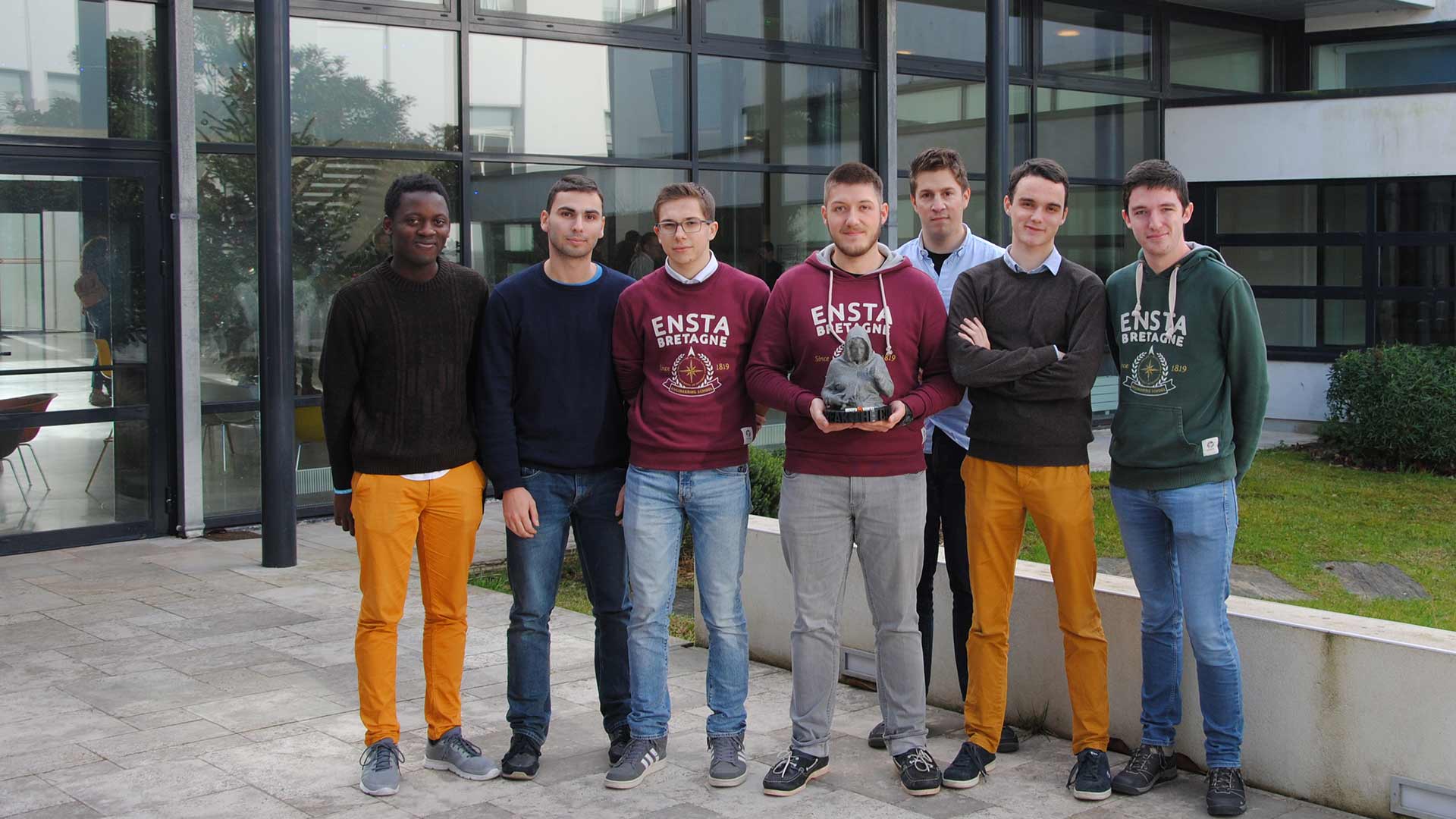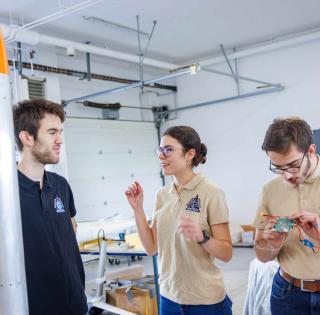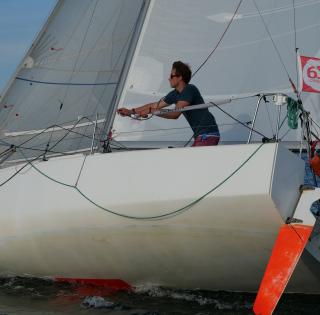

Alexandre, first year engineering student and one of the winning team, tells us about the experience :
What is the Brest "Break the Code" challenge ?
The Break the Code Challenge is a competition organized by Sopra Steria which lasts 1 ½ hours. The teams from the graduate schools in the Brest area go head-to-head to solve digital challenges. These challenges involve different skills such as programming, data analysis and digital knowhow.
How did you hear about it ?
The teachers from the Pôle STIC (Information and Communication Science and Technology Laboratory) at ENSTA highly recommended this challenge. Today, we say a big “thank you” to them! The information was then passed on to those interested in the brand new ENSTA Bretagne cyber club.
What made you want to take part ?
The cyber club is now two months old (see below). The idea is to develop the cyber aspect of the school to satisfy the expectations of the student enthusiasts in this subject and those who wish to gain experience through concrete examples. This first event represented an opportunity to test our skills against numerous and motivated competitors.
Can you describe what went on in more detail ?
The competition took place on a Wednesday evening. The staff from Sopra Steria were there to welcome us and create a good atmosphere.
At the start of the challenge, we received a memory stick containing the challenges. In my team, we chose to share out the questions right from the start, preferring to bank on productivity rather than safety to solve a minimum number of questions.
We divided up the questions according to our skills and preferences: some took on the analysis exercises (for example, finding a place using a set of photographs), others went for more algorithmic exercises such as the quest for “happy numbers”.
We got through the easy first challenges quite quickly. For the more complicated ones, we again decided to divide up the tasks.
At the end of one and a half hours of work, we managed to finish six or seven of the ten challenges. When they announced the results, we were not at all confident, but when ENSTA Bretagne was announced as the competition winner, we were over the moon !
The trophy will be up for grabs again next year : any tips for future competitors ?
ENSTA Bretagne’s cyber club will probably take part again in next year’s challenge ! Even with a little knowledge, everyone can manage to do at least one of the challenges on the list. Some teams finished quite high up the leader board having solved only a few challenges.
A few tips : concentrate on your objective and your challenge and above all, keep a close-knit team !
The 2019 competitors,
Théophane Benquet, Alexandre Froehlich et François Schmidt pour l'équipe gagnante et Virgile Cohen, Pierre Gabin FodopGumete et Guillaume Leinen.
Théophane Benquet, Alexandre Froehlich and François Schmidt for the winning team and Virgile Cohen, Pierre Gabin FodopGumete and Guillaume Leinen.
The club runs on the principle of sharing knowledge : a student who masters a technical subject trains the rest of the group. There are also additional optional practical exercises and challenges. Every week, there is a change of theme and a change of student teacher. From time to time, teachers or consultants can step in to add depth.
The idea of the club is to train students who are motivated but who do not necessarily have the knowledge, so that they can solve cyber challenges and also protect themselves by being able to understand cyber weaknesses.













